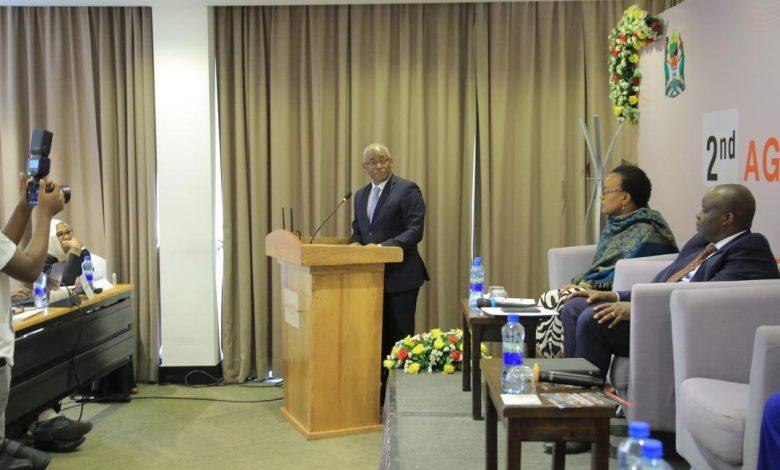Africa-Press – Tanzania. TANZANIA has reaffirmed its commitment to working closely with other African nations to ensure the continent speaks with one unified voice on climate change and environmental issues.
The pledge was made yesterday by the Minister of State, Vice-President’s Office (Environment), Engineer Hamad Masauni in a speech read on his behalf by the docket, Deputy Permanent Secretary Professor Peter Msoffe, during the official opening of the 2nd African Group of Negotiators (AGN) Strategic Meeting on Climate Change.
The three-day meeting, held in Dar es Salaam, aims to consolidate Africa’s negotiating positions and strategise ahead of the 2025 UN Climate Change Conference (UNFCCC COP 30), scheduled for November in Belém, Brazil.
In the course, Eng Masauni stressed the importance of unity in securing Africa’s environmental interests on the global stage.
“Tanzania has taken a firm stand to be united with our fellow Africans on matters concerning the environment. This is a position the government has adopted and remains fully committed to,” he said.
He added: “Let us work together to place African priorities at the heart of the global climate agenda and ensure that COP30 outcomes reflect the voices and aspirations of our continent.”
Addressing the meeting’s main objective, institutionalising the AGN Secretariat Minister Masauni highlighted that the move would reinforce African ownership of the group’s activities.
“Institutionalising the AGN Secretariat is not just about creating a structure, it’s about ensuring that every African country, from the most industrialised to the most climate-vulnerable, has equal access to technical support, timely information and meaningful representation in global climate processes.”
He commended the AGN Chair, Dr Richard Muyungi, for initiating the institutionalisation process during his tenure as chair from Tanzania.
“For over three decades, since 1995, the AGN has been at the forefront of global climate diplomacy, navigating a complex and evolving landscape. However, despite the commitment and technical expertise of our negotiators, the lack of a permanent institutional support system has often hindered continuity, technical backing and Africa’s strategic leverage,” he said.
Expanding on the institutionalisation agenda, Dr Muyungi said the process is intended to promote continental solidarity and ensure stronger coordination among African states.
He underscored the need to formally link the AGN with the African Union Commission (AUC) while maintaining its independence.
“We need to anchor the African Group of Negotiators within the AUC framework in a way that preserves its autonomy. Without such a link, there is a risk that individual national interests may weaken our collective agenda,” Dr Muyungi stressed.
For More News And Analysis About Tanzania Follow Africa-Press







